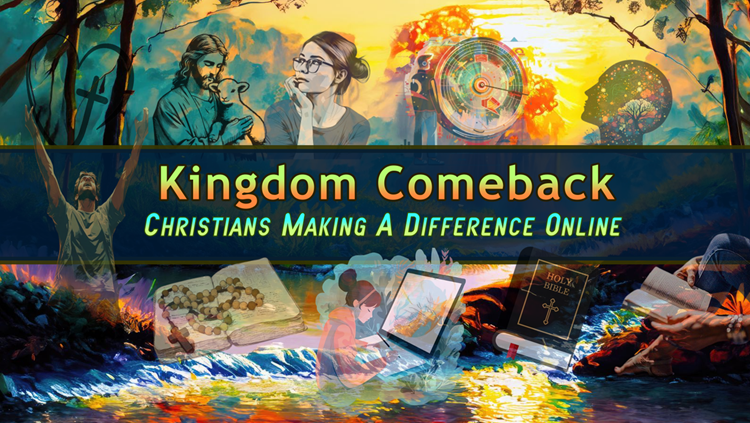Transforming Adversity into Purposeful Benefits
How we respond in a world filled with personal, social, or environmental challenges can define our lives and humanity’s collective future. When faced with adversity, many people and organizations harness their struggles and turn them into purposeful actions that foster positive change. This article explores the benefits of transforming challenges into purpose and how this approach can lead to a more resilient and equitable world.
Understanding the Concept
Turning challenges into purpose involves recognizing obstacles as setbacks and opportunities for growth and innovation. This mindset shift can lead to meaningful actions that resonate on multiple levels—from personal transformation to societal advancement.

When individuals confront difficulties, their responses can range from defeatism to empowerment. Those who choose the latter often find that their experiences can inspire change, foster community, and drive progress. The transformative power of purpose can lead to innovative solutions that alleviate immediate issues and address root causes, creating a ripple effect of positive outcomes.
Personal Growth and Resilience
Personal growth is one of the most significant benefits of turning challenges into purpose. Adversity often forces individuals to reevaluate their values, priorities, and goals, which can lead to greater self-awareness and resilience. When people emerge from their struggles with a renewed sense of purpose, they often develop a stronger sense of identity and increased emotional intelligence. 
Resilience is not just about bouncing back; it’s about bouncing forward. Individuals learn to navigate future challenges by finding purpose in adversity. This resilience can inspire others, creating a culture of empowerment and support. Communities that embrace collective resilience often become more cohesive, fostering a sense of belonging and shared mission.
Social Change and Community Building
When individuals channel their struggles into purposeful actions, they often inspire collective movements that can drive significant social change. Activism born from personal experience can be particularly powerful. For instance, those who have faced health crises may advocate for better healthcare policies, while individuals who have experienced discrimination might work toward social justice initiatives.
These grassroots movements can galvanize communities, uniting people around common goals. Community-building efforts that stem from shared challenges can lead to increased social cohesion, fostering networks of support that uplift marginalized voices. In this way, turning difficulties into purpose empowers individuals and strengthens the social fabric, making communities more resilient to future challenges.
Innovation and Creativity
Adversity often acts as a catalyst for innovation. When traditional solutions fail, the urgency of a challenge can spur creative thinking and novel approaches. Many groundbreaking inventions and initiatives have emerged from the desire to overcome obstacles. For instance, the global COVID-19 pandemic prompted rapid advancements in telehealth, remote work technology, and vaccine development—all born out of necessity.

In the business realm, companies facing challenges— market competition, environmental regulations, or social responsibility—often innovate to stay relevant. This can lead to more sustainable practices, ethical business models, and products that cater to evolving consumer demands. When organizations embrace challenges as opportunities for purpose-driven innovation, they contribute to a more sustainable economy and society.
Environmental Stewardship
Environmental challenges, such as climate change and biodiversity loss, present significant risks to our planet. However, these challenges also create opportunities for purpose-driven action. Individuals and organizations increasingly recognize the urgency of these issues and are mobilizing to make a difference. 
For instance, communities affected by climate change are becoming leaders in sustainability initiatives. Grassroots movements advocating for renewable energy, conservation efforts, and waste reduction often arise from the very challenges posed by environmental degradation. These initiatives address immediate ecological concerns and promote a culture of stewardship and responsibility toward the planet.
Moreover, organizations that integrate sustainability into their core missions often find that their purpose resonates with consumers and investors. This alignment can drive significant business success while contributing to the greater good, showcasing how challenges can lead to environmental benefits through purposeful action.
Economic Empowerment
Turning challenges into purpose can promote economic empowerment, particularly in underserved communities. Individuals who have faced financial hardships may develop innovative solutions to create jobs, support local businesses, or provide essential services. This entrepreneurial spirit can be a powerful driver of regional economic growth.
Social enterprises prioritize social impact alongside profit and often emerge from the desire to address systemic challenges. These businesses create jobs and contribute to community development by reinvesting profits into social programs. By fostering a culture of entrepreneurship rooted in purpose, communities can become more self-sufficient and resilient, breaking cycles of poverty and inequality.

Global Collaboration
Turning challenges into purpose in an increasingly interconnected world often leads to international collaboration. Global issues, such as pandemics, climate change, and human rights violations, require collective action. When countries, organizations, and individuals come together to address these challenges, they can share knowledge, resources, and strategies that amplify their impact.
International initiatives often emerge from the recognition that many challenges are interconnected. Addressing poverty requires economic solutions, educational access, healthcare improvements, and environmental sustainability. By working together toward a common purpose, nations can create comprehensive strategies that tackle multiple issues simultaneously. 
Inspiring Future Generations
One of the most profound benefits of turning challenges into purpose is the legacy it creates for future generations. When individuals and communities demonstrate resilience and a commitment to positive change, they set powerful examples for young people.
Education plays a critical role in this process. Schools and mentorship programs emphasizing purpose-driven actions can inspire the next generation to view challenges as opportunities. When young people see adults who have turned their struggles into meaningful contributions, they are likelier to adopt a similar mindset.
Encouraging a culture of purpose also fosters empathy and social responsibility. As future leaders, individuals who understand the value of turning challenges into purpose are more likely to advocate for equity, sustainability, and justice, shaping a more compassionate world.
Conclusion
Turning challenges into purpose is an individual endeavor and a collective movement that can yield substantial benefits for the world. From personal growth and community building to innovation, environmental stewardship, economic empowerment, and global collaboration, the positive impacts of this mindset are far-reaching.

As we navigate the complexities of the modern world, embracing challenges as opportunities for meaningful change is essential. By fostering a culture that values resilience and purpose, we can inspire individuals and communities to transform adversity into a driving force for good. Doing so will pave the way for a brighter, more equitable, and sustainable future for all.
CLAIM YOUR FREE BOOKS & COURSES!




